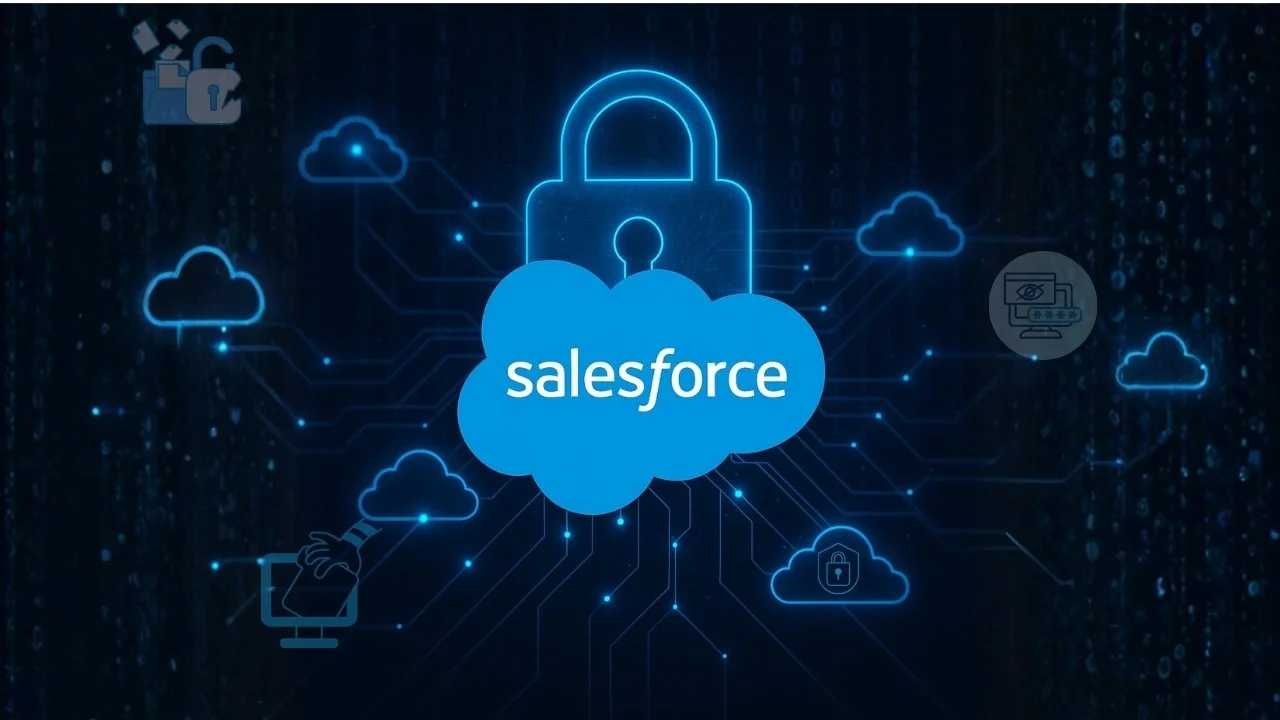Salesforce has cut off connections to Gainsight-published applications as part of an ongoing investigation into a potential data breach that may have exposed customer information.
The company said in a Friday (Nov. 21) help article that it identified “unusual activity” related to the apps, which are installed and managed directly by customers. The activity, Salesforce said, may have enabled unauthorized access to certain customers’ Salesforce data through the app’s connection.
“There is no indication that this issue resulted from any vulnerability in the Salesforce platform,” the company emphasized. “The activity appears to be related to the app’s external connection to Salesforce.”
As a precautionary measure, Salesforce disabled the connection between Gainsight apps and its core platform on Thursday (Nov. 20), halting all integrations until further notice.
What Happened: External App Connections Under Scrutiny
Salesforce said its security teams detected irregular access patterns associated with Gainsight-managed integrations. The company’s response — disabling all Gainsight app connections — is designed to prevent any potential spread or secondary exploitation.
According to Salesforce’s support update, affected customers will be unable to connect Gainsight-published applications until the investigation is complete. The company has pledged to provide ongoing updates through its official Help portal.
Meanwhile, Gainsight acknowledged the disruption in a Thursday status update, confirming that Salesforce revoked active access tokens for its SFDC Connector, leading to connection failures across customers’ instances.
“We continue to work closely with Salesforce as part of the ongoing investigation,” Gainsight said in an update posted Friday evening. “Gainsight-published applications remain disconnected from Salesforce at this time.”
Gainsight’s Response: Ongoing Investigation and Monitoring
In successive updates on its status page, Gainsight said it is continuing to investigate and monitor the situation in partnership with Salesforce.
The company provided its latest statement at 19:15 UTC on Friday, linking directly to Salesforce’s advisory post and reassuring customers that no new unauthorized activity had been observed since the connection was severed.
The joint updates from Salesforce and Gainsight highlight a coordinated containment effort, a necessary step given the growing risk posed by third-party integration breaches across major enterprise ecosystems.
Broader Context: Third-Party Risk on the Rise
The Salesforce–Gainsight incident underscores a persistent and expanding challenge across enterprise IT: supply-chain cybersecurity risk.
According to Verizon’s 2024 Data Breach Investigations Report, 30% of all recorded data breaches in the 12 months ending Oct. 31, 2024, involved third-party vendors or suppliers — up from 15% the year before.
“Over the last two to three years, third-party exposure has evolved from an occasional inconvenience to a systemic vulnerability,” Verizon said in the report. “These incidents now have the potential to inflict broad operational and reputational damage.”
Cybersecurity experts have warned that 2025 is likely to see even more attacks targeting supplier networks, where attackers exploit trusted connections to infiltrate larger enterprise systems.
| Year | % of Breaches Involving Third Parties | Trend |
|---|---|---|
| 2023 | 15% | Baseline risk recognized |
| 2024 | 30% | Doubling of third-party exposure |
| 2025 | (Projected) 35–40% | Rising due to SaaS integration expansion |
Forecast based on multiple cybersecurity research briefs from late 2024.
Why This Incident Matters?
Salesforce’s prompt containment response reflects an industry-wide recognition that vendor access points are often the weakest link in enterprise defense strategies. Even when primary platforms remain secure, data bridges to external applications — such as analytics tools, CRMs, or marketing platforms — can expose sensitive customer information if compromised.
“In a modern SaaS ecosystem, a company’s security is only as strong as its least secure integration,” said Rachel Kwan, cybersecurity policy analyst at Gartner Digital Risk Practice. “What we’re seeing here is a textbook example of proactive isolation to prevent escalation.”
This incident may also prompt Salesforce and other SaaS providers to reassess their marketplace vetting protocols, particularly around permissions, token management, and cross-platform authentication standards.
Industry Implications: Tightening the SaaS Supply Chain
Enterprises have become increasingly dependent on app marketplaces — like Salesforce AppExchange — for workflow and data integrations. Yet, as those ecosystems grow, so do their attack surfaces.
Best practices emerging from incidents like this include:
- Stricter token revocation policies to limit third-party access windows.
- Mandatory security attestations from app developers.
- Automated anomaly detection for external API behavior.
- User-level audit trails to identify potential data exposure.
Cyber experts say that as AI-driven attacks evolve, securing the “connections between systems” will matter as much as securing the systems themselves.
Conclusion: Containment First, Confidence Later
The Salesforce–Gainsight disconnection highlights a recurring truth in enterprise security: trust must be continuously verified. As major SaaS platforms continue to expand their app ecosystems, the need for transparent, standardized third-party risk frameworks becomes increasingly urgent.
For now, Salesforce customers can expect temporary disruption — but also a renewed emphasis on the integrity of their data connections.
“Incidents like this are painful in the short term,” said Kwan, “but they’re critical to long-term resilience. Every disconnection is also a reset of trust.”
FAQs
What exactly did Salesforce disable?
All active connections between Salesforce and Gainsight-published applications have been suspended until further notice.
Was the Salesforce platform itself breached?
No. Salesforce stated there is no evidence of vulnerability or compromise within its core platform. The issue is isolated to external app connections.
Which customers were affected?
Salesforce has not disclosed customer names but confirmed that some users of Gainsight-published apps may have experienced data exposure.
What data could have been accessed?
Potentially corporate data, including accounting and legal records, or customer data stored within Gainsight-managed integrations.
When will connections be restored?
Salesforce said the suspension will remain in place until investigations are complete and all security assurances are verified.

